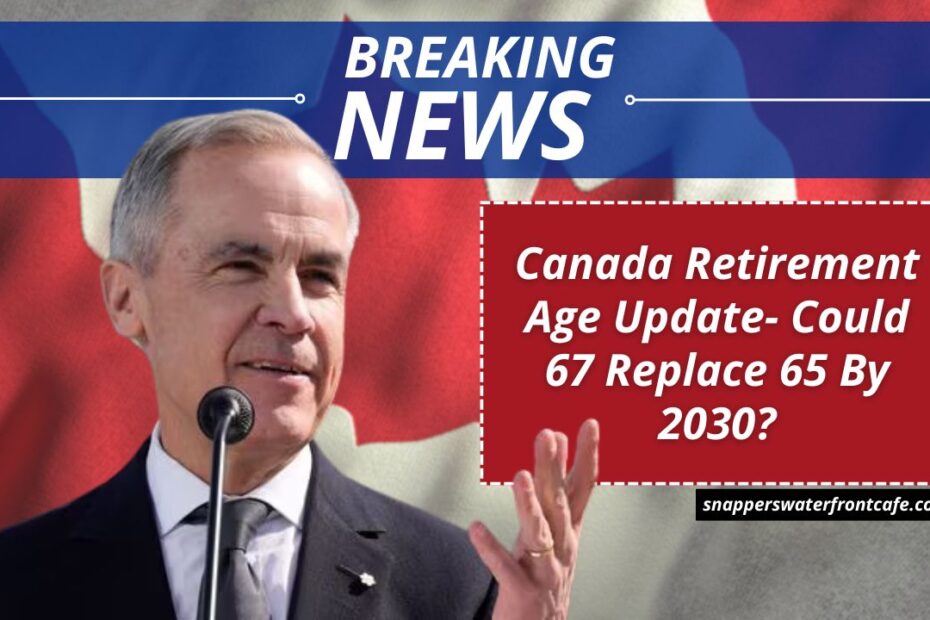Canada’s retirement age dynamics may be shifting. While eligibility for the Old Age Security (OAS) has already changed, discussions are underway about raising the standard retirement age across broader pension programs. Here’s the real, up‑to‑date picture of what’s in motion—and what it means for your future.
Current Status & Background
| Program | Current Age | Upcoming Change | Timeline |
|---|---|---|---|
| OAS / GIS | 65 | Gradual increase to 67 | Started April 1 2023 → full by January 2029 |
| CPP | 65 (standard), 60–70 flexible | No age bump proposed; focus on enhancements and contribution structure | 2025-ongoing |
| Proposed pension policy | 65 | Raise to 67 by 2030 (under discussion) | Not yet law; policy proposal stage in 2025 |
Old Age Security (OAS)
Eligibility for OAS and the GIS has already begun shifting: starting April 2023, the age is being phased from 65 to 67, fully implemented by January 2029. Those currently receiving benefits are not affected .
Canada Pension Plan (CPP)
No change to the standard CPP retirement age—it remains 65, with options to retire as early as 60 (reduced benefits) or delay until 70 (higher benefits) . Instead, the CPP is undergoing enhancements:
- Increased replacement rate: from 25% up to about one-third (33.33%) of earnings
- Higher earnings ceiling: The maximum pensionable earnings limit is rising ~14% by 2025, from roughly $66,600 to ~$79,400
- Monthly benefit benchmarks: As of January 2025, max CPP at age 65 is $1,433/month, with the average around $899.67/month (Oct 2024)
New Policy Discussion—Raising Retirement Age to 67 by 2030?
There’s a policy proposal in 2025 dubbed the “Pension Withdrawal Policy Updates,” including ideas such as:
- Raising the retirement age from 65 to 67 by 2030
- Permitting partial CPP withdrawals from age 60
- Imposing tiered CPP contributions on high earners
- Increasing pension bonuses for delayed retirement
- Expanding tax credits for seniors working past age 65
But this is still under discussion, with no bill passed yet.
What It Means—Who’s Affected?
- OAS recipients born after Feb 1962: will see their eligibility shift to age 67.
- CPP contributors: unaffected in terms of age, but may benefit from enhanced rate/replacement and higher ceilings.
- Future retirees (accessing CPP/OAS post‑2030): likely to see retirements delayed and contributions adjusted.
Broader Context
Rising demographics and cost pressures—such as faster aging, longer lifespans, inflation, housing, and healthcare costs—are driving considerations for pension reform and eligibility changes
In summary:
- OAS age is already raising to 67 by 2029.
- CPP retirement age remains at 65, with flexible options between 60–70; focus is on enhancements, not age change.
- A debated proposal to raise the general retirement age to 67 by 2030 is in early policy stages—not yet adopted.
FAQs
Is Canada’s retirement age changing to 67 by 2030?
Not officially—though OAS eligibility is moving to 67 by January 2029. Other programs have no confirmed changes yet, but raising the retirement age to 67 by 2030 is under review in Parliament.
Can I still retire at 65 or earlier?
Yes. OAS is still available at 65 until the phase‑in completes in 2029. CPP allows retirement as early as 60 (with reduced benefits) or as late as 70 (with increased benefits).
